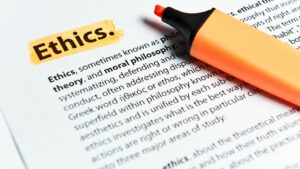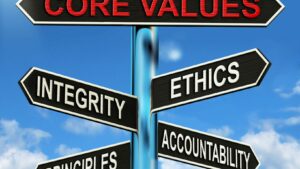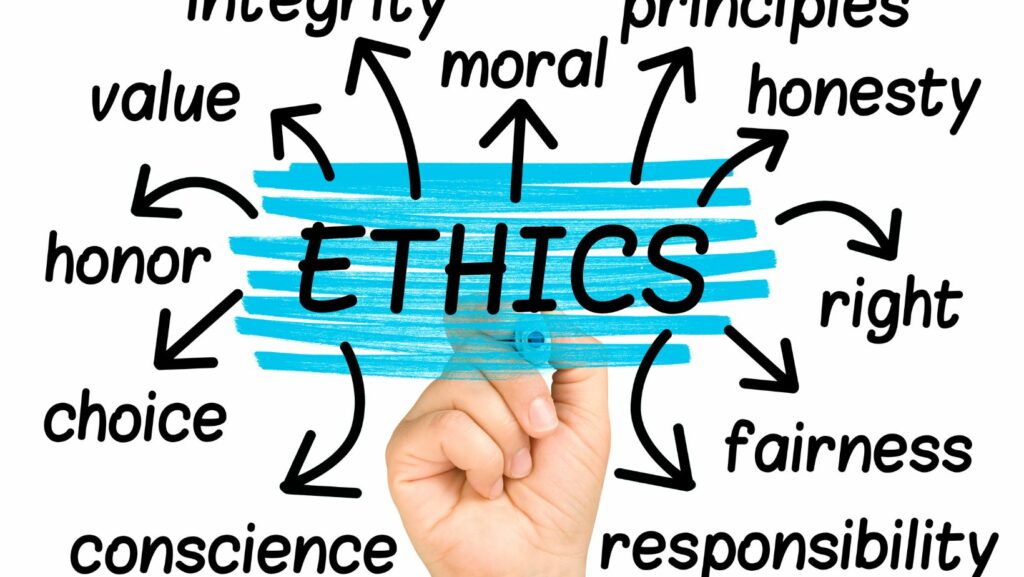Media Ethics Cases
- Understanding Media Ethics: Media ethics is essential for maintaining integrity and credibility in journalism, particularly in an age of rapid information dissemination.
- Significant Cases: Historical media ethics cases, such as Jayson Blair and Rolling Stone, illustrate the serious implications of unethical reporting practices on public trust and institutional credibility.

- Ethical Principles: Truthfulness, accuracy, fairness, and impartiality are foundational principles guiding journalists in ethical decision-making and reporting standards.
- Impact on Standards: Notable media ethics breaches often lead to revised editorial policies and stricter regulations to foster accountability and promote ethical journalism.
- Public Trust: Maintaining public trust in media requires consistent adherence to ethical standards and transparent practices, especially in the wake of high-profile ethical failures.
In an age where information flows freely and rapidly, the importance of media ethics has never been more critical. Journalists and media outlets face complex dilemmas that challenge their integrity and credibility. From sensationalism to misinformation, these ethical breaches can have lasting impacts on public perception and trust.
Examining notable media ethics cases reveals the fine line between responsible reporting and the pursuit of sensational headlines. Each case serves as a reminder of the profound responsibility journalists carry in shaping narratives and influencing society. As the media landscape continues to evolve, understanding these ethical challenges is essential for both professionals and consumers alike.
Overview of Media Ethics Cases
Media ethics cases highlight the challenges journalists and media outlets encounter when balancing truthfulness, fairness, and the public’s right to know. High-profile incidents often serve as pivotal lessons for the industry.
- Jayson Blair (2003): Jayson Blair, a former reporter for The New York Times, fabricated quotes and misrepresented events in numerous articles. This case raised questions about editorial oversight and accountability within major news organizations.
- Dan Rather and CBS (2004): Dan Rather’s report on President George W. Bush’s military service raised concerns about document authenticity and the reliability of sources. The fallout emphasized the need for rigorous fact-checking and source verification.
- Rolling Stone and UVA Rape Article (2014): Rolling Stone’s article about an alleged gang rape at the University of Virginia faced significant backlash due to unverified claims. This case underscored the consequences of neglecting journalistic standards and the impact on victims and institutions.
- The BBC and Jimmy Savile (2012): Allegations against BBC entertainer Jimmy Savile, ignored for decades, prompted scrutiny of the organization’s culture and practices. The scandal revealed failures in safeguarding ethical journalism and protecting vulnerable individuals.
- Fox News and the Arizona Election Call (2020): Fox News prematurely called the Arizona election for Joe Biden, raising concerns about the accuracy and timing of election reporting. This case illustrates the potential consequences of rushing to report breaking news without sufficient verification.
These cases serve as a reminder of the vital role ethics play in journalism. Each incident contributes to ongoing discussions about accountability, transparency, and ethical standards across media platforms.
Significant Media Ethics Cases in History
Media ethics cases illustrate the critical struggles between journalism and ethical standards, highlighting the repercussions of unethical practices. Several significant cases exemplify these challenges.
Case Study 1: The Watergate Scandal
The Watergate scandal remains a landmark case in media ethics. Journalists Bob Woodward and Carl Bernstein from The Washington Post uncovered a cover-up related to the 1972 break-in at the Democratic National Committee headquarters. Their investigation demonstrated the power of investigative journalism and the ethical imperative to seek truth. The story prompted deeper scrutiny of political misconduct and underscored the necessity for media accountability in holding those in power responsible.
Case Study 2: The Abu Ghraib Photos
The release of photos depicting the abuse of prisoners at Abu Ghraib prison sparked outrage and highlighted serious ethical concerns in military reporting. In 2004, CBS News aired a segment that exposed the mistreatment of detainees by U.S. military personnel. This situation prompted debates about the responsibilities of journalists in portraying sensitive subjects and the potential consequences of exposing human rights violations. The coverage emphasized the need for ethical considerations in balancing national security with the public’s right to know.
Ethical Principles Relevant to Media Ethics Cases
Media ethics revolves around key principles that guide journalists and media organizations in their reporting duties. Understanding these principles is crucial for navigating ethical dilemmas in today’s complex information landscape.
Truthfulness and Accuracy
Truthfulness and accuracy stand as foundational tenets of journalistic integrity. Journalists must report facts without distortion, ensuring that information is verified through reputable sources. The Society of Professional Journalists (SPJ) emphasizes the obligation to seek and report the truth as a core ethical principle. Inaccurate or misleading information can lead to public confusion and diminish trust in media institutions, demonstrated by high-profile cases such as the Jayson Blair scandal, where fabricated stories tainted the reputation of the New York Times. Fact-checking and corroborating claims with multiple sources enhance credibility and accountability, reinforcing the commitment to honesty in journalism.
Fairness and Impartiality
Fairness and impartiality require that journalists present various perspectives, particularly on contentious issues. This principle mandates an unbiased approach, giving voice to all sides of a story without favoritism. The BBC’s handling of the Jimmy Savile allegations illustrates the impact of impartial reporting and the consequences of failing to maintain this ethical standard. By ensuring equitable representation of viewpoints, media professionals foster a more informed public discourse. Adhering to fairness also involves distinguishing between news reporting and opinion pieces, clarifying the intent behind content, and mitigating potential biases that may influence audience perceptions.
The Impact of Media Ethics Cases on Journalism
Media ethics cases significantly shape journalism practices and influence industry standards. They prompt critical evaluations of ethical conduct and ongoing discussions on accountability.
Changing Standards and Regulations
 Changing standards and regulations often emerge in response to media ethics cases. Cases like the Jayson Blair scandal prompted news organizations to revise editorial policies and implement stricter oversight measures. This shift aims to ensure accuracy and enhance accountability. Notably, the fallout from the Rolling Stone UVA rape article led to the establishment of clearer guidelines for fact-checking and source verification. Additionally, ongoing conversations about misinformation and public trust have resulted in new regulatory frameworks, promoting ethical reporting and fostering a culture of transparency within the industry.
Changing standards and regulations often emerge in response to media ethics cases. Cases like the Jayson Blair scandal prompted news organizations to revise editorial policies and implement stricter oversight measures. This shift aims to ensure accuracy and enhance accountability. Notably, the fallout from the Rolling Stone UVA rape article led to the establishment of clearer guidelines for fact-checking and source verification. Additionally, ongoing conversations about misinformation and public trust have resulted in new regulatory frameworks, promoting ethical reporting and fostering a culture of transparency within the industry.
Public Trust and Credibility
Public trust and credibility hinge on the consistent application of media ethics. High-profile ethics cases, such as those involving Dan Rather and Fox News, illustrate the potential damage to trust when ethical breaches occur. These incidents reveal how misinformation can erode audience confidence in media outlets. Restoring credibility necessitates transparent practices and a commitment to truthfulness. Implementing robust training programs for journalists on ethical dilemmas fosters a culture prioritizing ethical conduct. Through these measures, media organizations can rebuild trust, proving their commitment to serving the public and upholding journalistic integrity.
Integrity and Credibility
Media ethics remain a cornerstone of journalism’s integrity and credibility. The cases discussed highlight the profound impact ethical lapses can have on public trust and the responsibilities journalists bear in their reporting. As the media landscape evolves, adherence to ethical principles like truthfulness and fairness is more crucial than ever.
Ongoing training and clear guidelines can help media professionals navigate complex dilemmas. By fostering a culture of accountability and transparency, the industry can work towards restoring public confidence. Understanding these ethical challenges is essential for both media practitioners and consumers, as they shape the narratives that influence society.

